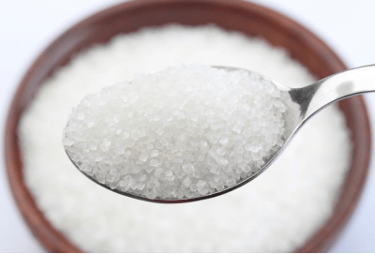
Like it or not, many of us can barely get through the day without some sort of sugar rush. We are a nation of sugar addicts, like hummingbirds desperate for more sweet nectar to help fuel ourselves as we buzz about our busy lives. However, the scandalous amounts of refined sugar present in our store bought food and drink items are leading to a serious health crisis in the UK.
Refined sugar is a sweet poison. Although natural sugars exist in fruits and honey, refined sugars offer no nutritional value whatsoever and are regarded as an “empty calorie.” Research suggests we should consume a maximum amount of 9 teaspoons for men, and 6 teaspoons added sugar for women per day. Worryingly the average Brit is consuming 40 sugar cubes per day, often without even knowing about it.
This may sound extreme but it does emphasises a key point. We eat too much sugar. The excessive consumption of sugar, often hidden in high fructose corn syrup added to processed foods, is the prime reason for the increase in obesity and diabetes over the past thirty years.
A recent investigation into our high street coffee shops showed some alarming results. A staggering 25 teaspoons of sugar were found in a mulled fruit chai orange drink, and a further 20 teaspoons of sugar in a chai latte! Highlighting a dangerous trend in which corporations are sacrificing our health and well-being, for a taste sensation in which we are unconsciously and unknowingly consuming this much sugar.
Having too much glucose (blood sugar) is highly toxic to our bodies. This has a dangerous effect on our insulin hormones, in which it allows glucose to enter our cells from the bloodstream and tells them to burn glucose instead of fat. This process is known as insulin resistance, a direct cause of many diseases such as obesity, heart disease and diabetes.
Furthermore, refined sugar is also high in fructose which can damage your liver. Fructose can only be broken down the liver, which in large quantities can overload the liver's function and forces the liver to turn fructose into fat. Having a fatty liver can have a number of serious health problems which can lead to cirrhosis, heart attacks and strokes.
Studies have also shown that sugar can have a serious effect on our mental wellbeing. Sugar has similar effects on opioid pathways within the brain, the same system manipulated by drugs like heroin. Sugar is without doubt an addiction, and like an abusive drug it causes a massive release of dopamine in the reward centre of the brain. The sugar which is present in our junk food is far stronger than what we would find in the foods commonly found in nature. It comes as no surprise to see why we have tricked our brains to become reliant on a sugar fix to help us when our blood sugar levels are fluctuating. This can put us in a cycle in which we want more sugar to help when those bad mood swings come creeping up on us.
The reality of the matter is that children, teenagers and adults are consuming three times the recommended level of sugars every day. The solution of trying to live a completely sugar free lifestyle is unrealistic and unreasonable. However, there are steps we can take to significantly reduce our sugar intake to work towards a more balanced and healthier lifestyle.
The best step we can take is to try and move away from processed ready meals. By cooking more homemade meals on a regular basis will get us into the habit of controlling what goes into our food. In addition, try and drink more water on a regular basis and have fizzy and sugary drinks as a treat every now and then. If you think that caramel and double cream iced latte isn’t too bad for you on a regular basis, you should see how much sugar syrup goes into each product...
The answer is never going cold turkey, but having a greater awareness and making small adjustments to our diets will have greater long term effects. For example if you take out even one teaspoon of sugar in your morning coffee or tea, that's 365 teaspoons a year. Small steps such as these can make all the difference over time when it comes to your health and wellbeing.